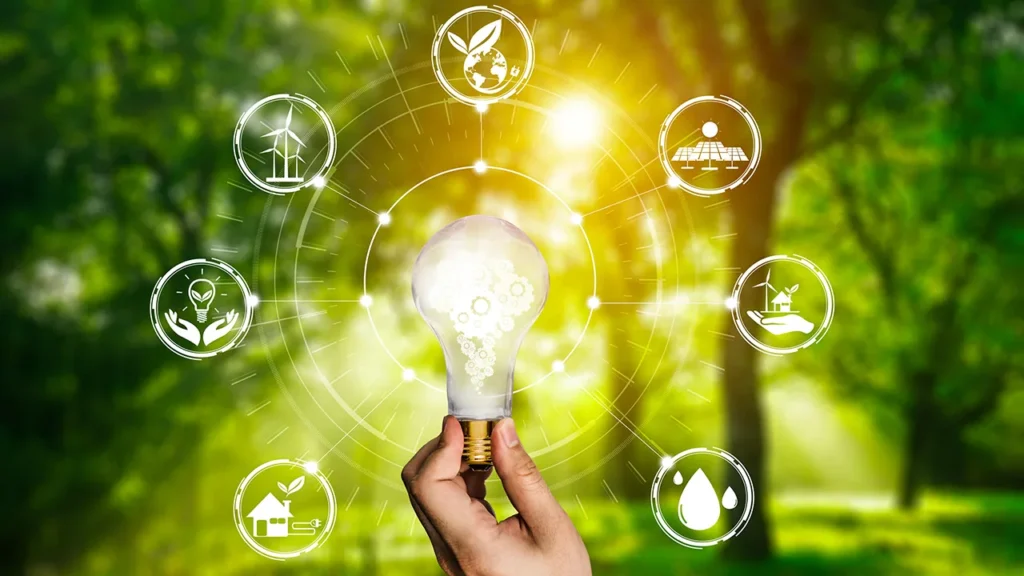
In the battle to combat climate change it is crucial to embrace innovative solutions. One promising approach is biomass waste recycling. By converting waste into resources, biomass waste recycling not only helps reduce greenhouse gas emissions but also fosters sustainable development. Let’s delve into how this method operates and its potential in addressing warming.
Exploring Biomass Waste Recycling
Biomass waste recycling entails converting waste materials such as leftovers, food scraps and forest residues into useful products like bioenergy, compost and bioplastics. This process leverages the natural carbon cycle. Where plants absorb carbon dioxide (CO2) during photosynthesis and release it upon decomposition or incineration. Through management of this cycle we can minimise the release of CO2 into the atmosphere.
Operational Process
1. Gathering: Organic waste is gathered from a variety of sources including farms, food processing facilities and households.
2. Treatment: The waste undergoes treatments such, as composting or pyrolysis to break down the organic material.
After processing, the waste is transformed into various sub-products such biogas, biochar or compost which can serve as sources of energy, soil enhancement or raw materials for goods.
Environmental Advantages
– Decreased Greenhouse Gas Emissions
One of the benefits of recycling biomass waste is the reduction in greenhouse gas emissions. When organic waste decomposes in landfills ,it releases methane, a greenhouse gas that traps heat in the atmosphere more effectively than CO2. By diverting waste from landfills and converting it into bioenergy or other products we can significantly lower methane emissions.
– Carbon Storage
Certain biomass recycling methods, such as pyrolysis, produce biochar—a form of carbon that enhances soil fertility. When applied to soil, biochar locks in carbon for hundreds to thousands of years preventing its release back into the atmosphere. This carbon storage ability makes biochar an asset in combating global warming.
– Production of Renewable Energy
Biomass waste can be turned into biogas through a process. Biogas mainly consists of methane. It can be utilised for electricity and heat generation offering an energy source that reduces dependence on fossil fuels.
By substituting fossil fuels with biogas we have the opportunity to reduce CO2 emissions and support a clean energy for the future.
Benefits, for the Economy and Society
– Job Opportunities
The recycling industry of biomass waste opens up job prospects throughout its various transformational phases from collecting and processing waste to manufacturing and distributing products. This job creation can invigorate economies in rural areas where there is an abundance in agricultural waste.
– Sustainable Farming
Converting waste into compost or biochar enhances soil health and fertility promoting sustainable farming methods. Healthier soils boost crop yields. This also lessen the reliance on chemical fertilisers which can be environmentally damaging.
– Empowering Communities
Local biomass recycling projects empower communities by equipping them with the tools and knowledge needed to manage the waste they generate. These initiatives can cultivate a sense of ownership and responsibility towards the environment encouraging shifts towards sustainability.
Obstacles and Resolutions
– Technological and Financial Challenges
Integrating technologies for recycling biomass waste can be both expensive and technically intricate. To address these challenges, governments and development organisations can offer incentives, subsidies, as well as technical assistance. Investing in research and development can also result in the development of cost effective recycling technologies.
Market and Public Awareness
To create a demand, for products made from biomass waste, it is essential to educate the public about the advantages of these products. Initiatives such as public awareness campaigns and incentives for using biomass based products can influence consumer choices and boost market demand.
In Summary
Biomass waste recycling offers a viable strategy to address the challenges of global warming. Using biomass waste can help in decreasing greenhouse gas emissions and also provide a viable route to generate clean and affordable energy for many communities around the world.
Moreover, the transformation of biomass waste has huge economical and societal advantages: job creation, sustainable farming practices, community empowerment. With support and investment from governmental bodies biomass waste recycling has the potential to play a role in the global battle against climate change.


